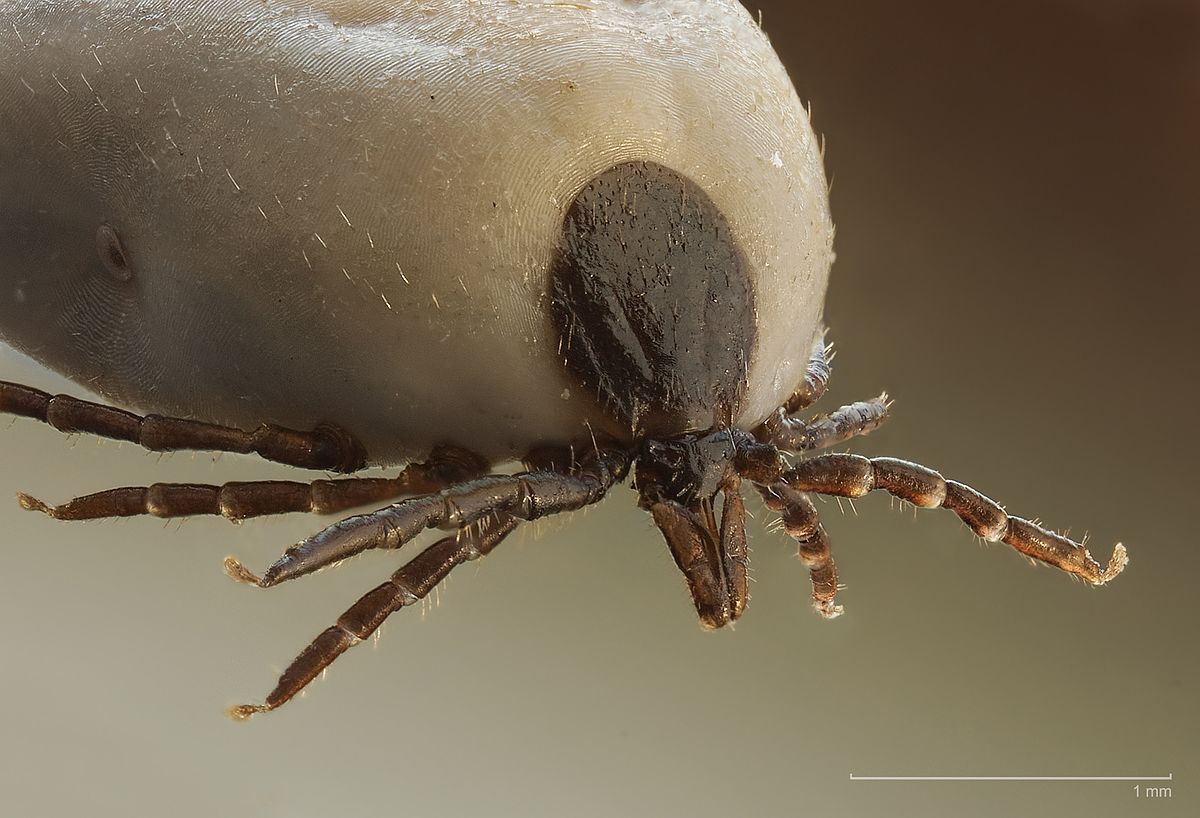People across South Devon are being warned about the potentially life-threatening dangers of ticks and fleas this summer.
Walkers, gardeners and anyone enjoying South Devon’s green spaces are advised by experts to take extra care in preparing themselves against the sometimes harmful creepy crawlies.
Fleas and ticks attach themselves to people and pets, can quickly infest a home, and are present right across the South West.
Last month, someone in Devon contracted the very rare babesiosis infection after being bitten by a tick. Certain types of the babesiosis can endanger life if untreated.
South Devon’s hot and humid weather has created perfect conditions for fleas and ticks.
Aurelie Gayraud is a Senior Brand Manager for the pet-care brand Bob Martin, which specialises in eradicating fleas, ticks and worms from pets and homes.
She said: “Those who have encountered them will be all too familiar with just how annoying tick bites and flea infestations can be for you and your pet, but they can sometimes be really dangerous, with tick bites potentially resulting in Lyme Disease, which can prove fatal for us and our pets in rare circumstances.
“With the hot and humid weather the country has had recently, we’ve seen a large increase in the prevalence of the parasites in our outdoor spaces throughout the summer. But if you’re careful and follow some simple steps, you can certainly mitigate the risks of coming into contact with the little critters.”
Aurelie shares her top five tips for how we can keep safe when out and about this summer.
1. KNOW WHAT TO LOOK OUT FOR
FLEAS:
• Fleas can jump up to a foot in the air, making our pets easy targets for them to come into contact with. As one of the most common parasites in the UK found on our pets, they can easily come into our homes, infesting our bedding, carpets and furniture.
• Spring and summer are the prime times for flea outbreaks as they thrive in warm, humid temperatures. The key to stopping a flea infestation is by stopping its life cycle, through the eradication of both eggs and adult fleas alike. To do this, you’ll have to buy home treatments to solve indoor problems as well as buying flea treatments for your pets.
TICKS:
• Ticks are drawn to warm bodies, hiding in long grass, foliage and bushes, before they latch themselves onto us or our pets.
• As they latch, they inject an anaesthetic, so often we won’t even notice that we’ve been bitten immediately. But once latched, they can feed for up to 3 days, so you’ll most certainly notice it on you. They’ll latch onto you or your pets so look out for small, round grey/brown critters.
• Ticks vary in size, depending on life stage and how recently they’ve fed: starting off as small as a pinhead, growing rapidly as they fill with blood.
2. BE AWARE OF THE DANGERS
• Infestations can quickly spiral out of control. With one female flea able to lay 50 eggs per-day, you can see how quickly an infestation can take hold from just a single bug!
• As well as being an itchy pain, pets can develop allergies to fleas, called Flea Allergy Dermatitis which can cause hair loss and sores – it can be really unpleasant for your pet if it’s not treated
• Fleas are also responsible for transmitting tapeworms to dogs, cats and even us! They can spread some nasty diseases too
• Ticks on the other hand, can cause serious diseases in the UK. When disturbed, infected ticks can transmit Lyme disease, which if left untreated can spread around the body for months after infection, causing facial palsy, arthritis and even damaging the nervous system. They can also transmit other illnesses, such as babesiosis and tick fever
3. KEEP AN EYE OUT FOR FLEAS AND TICKS ON YOUR PETS
• Fleas are hard to spot, but the symptoms can be all too familiar. Cases of a severe flea infestation can include sore areas and rashes on your pet with mild cases resulting in incessant scratching – if you’re worried about a severe case on your pet, do consult your vet
• An eighth of an inch long, they’re reddish-brown and really thin, so can be hard to see. You can buy a flea comb to brush your pet with, which will catch and enable you to easily identify them
• Ticks can be easier to spot. They attach to their host for a meal and can latch on for days, so you may find an attached tick with its head burrowed under you or your pet’s skin.
4. TAKE STEPS TO PREVENT OR TREAT THEM
• If you don’t have an issue, but want to prevent flea and tick problems, you can use flea shampoos, spot ons, cat collars (for your pet) or home sprays, which can keep critters at bay throughout the year
• If you have a problem with fleas and ticks, you should provide flea tablets, treat your home and then apply spot-on flea and tick products to your pets which will kill the critters and prevent them coming back, such as Bob Martin’s Clear range.
• In the meantime, wash your pets’ bedding over 40⁰c, vacuum wherever you can, paying attention to warm, dark, protected areas – a flea’s idea of a perfect home!
• Spray the soft furnishings with a suitable Flea Spray. Bob Martin Clear Home sprays have a lasting effect, so continue to work after application, alternatively, ‘Pesticide Free’ products utilising the benefits of dimethicone as the active ingredient are available too. Re-spray the home if you wish after a few days, try steaming hard floors and tiles, and don’t forget to move the furniture
5. BE WARY OF YOUR SURROUNDINGS
• You can wear light-coloured clothing with long sleeves and avoid wearing shorts in long grassy areas, tucking your trouser legs into your socks
• The Government’s Tick awareness site will give some further steps on avoiding known infested areas
• Regularly check yourself, your children and your pets on a daily basis after a walk for ticks, being careful to remove any you spot.
• You can use tweezers to remove ticks, but make sure you always twist, rather than pull the tick out. Once removed, check the tick is whole, then soak it in alcohol to kill it or squash it in tissue and dispose of it, be careful as engorged ticks will contain potentially infected blood.
For more information on Bob Martin as well as tips and advice on managing fleas, ticks and worms, please visit www.bobmartin.co.uk

You can join us on our social media pages, follow us on Facebook or Twitter and keep up to date with whats going on in South Devon.
Got a news story, blog or press release that you’d like to share or want to advertise with us? Contact us




























